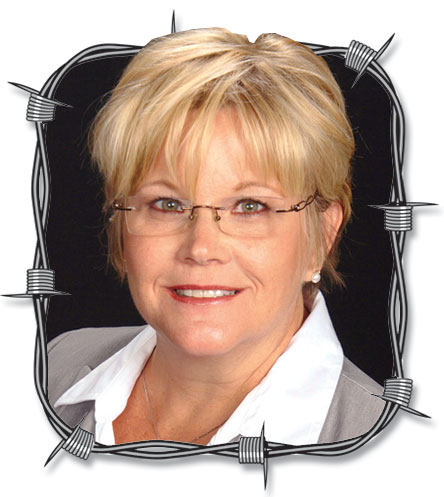As the old saying goes, character means doing the right thing even when nobody else is watching. In the context of credit, character also means doing the right thing by making your payments in full and on time, paying down your debt and not allowing accounts to go to collections. Even though employers, insurance agents and loan officers may not be watching your credit activity all the time, you can bet the farm it’ll come to their attention should you ever need their services.
Credit is an invaluable tool when used responsibly, as the vast majority of us would be unable to buy a home or start a business without it.
When you apply for a loan – either for business-related items such as farm equipment or livestock, or for personal property such as a home or automobile – it helps to put yourself in the loan officer’s shoes. Think about what you would want to know about a prospective customer if you were the one making the loans. In addition to the client’s income-debt ratio (1. Capacity) and whether they have any valuable assets to secure the loan (2. Collateral), it would be imperative for you to also review how the prospective client has handled credit in the past (3. Character). This will give you a good idea of how much of a risk you are taking if you grant a loan to this client.
Examples of financial activity you will and won’t see:
• Automobile loan
• Credit card account
• Retail card account
• Mortgage
• Student loan payments
• No checking or savings account activity
• No municipal payments (e.g. payment of fines, payment to IRS, court costs, etc.)
• No rent payments
• No insurance premiums
• No utility payments
It is important to realize that the most powerful boost to your credit rating is paying your bills in full and on time. Just one late payment can stain your credit report for many years to come – even if you pay the account balance in full.
Another major factor in determining a credit score is the percentage of credit available to you that you are using. For example, if you have a credit card with a limit of $10,000, it is wise to keep the balance below 30 percent of the limit. The closer that balance gets to the credit limit, the more likely you are to max out the card, and the more your credit score will suffer. Furthermore, it is a good practice to pay the balance in full every month whenever possible. This will help you avoid paying so much in finance charges over time.
The length of your credit history also plays a major role in whether your credit score is favorable or not. Some people mistakenly believe that closing an old credit card in good standing will help their credit rating. The fact is that when you close out an account you’ve had for a few years, you are shrinking your personal credit history. This will never help your score, and can often hurt it.
It is also important to have a good mix of credit. If your credit report reflects only revolving credit (e.g. credit card) or only installment credit (e.g. mortgage), then your score will not be as strong as it could if you had a healthy mix of both kinds.
For the most part, keeping a favorable credit rating can be accomplished with common sense. In fact, aside from the often-complicated formulas and jargon of the credit industry, you can pare down the entire concept of establishing good credit to one simple sentence: “Live up to your end of the bargain.” By doing this, you will be proof that establishing good credit can be the result of demonstrating good character.
Mary Catherine Harcourt is with Credit Counseling of Arkansas.





